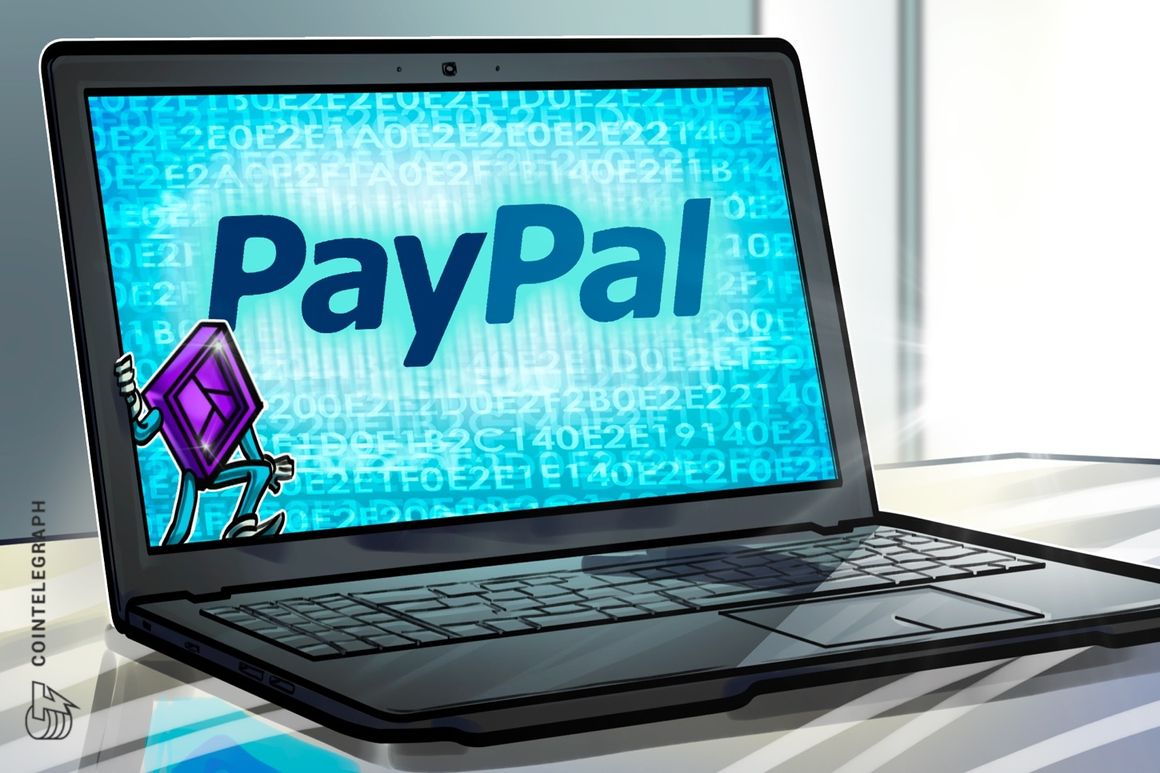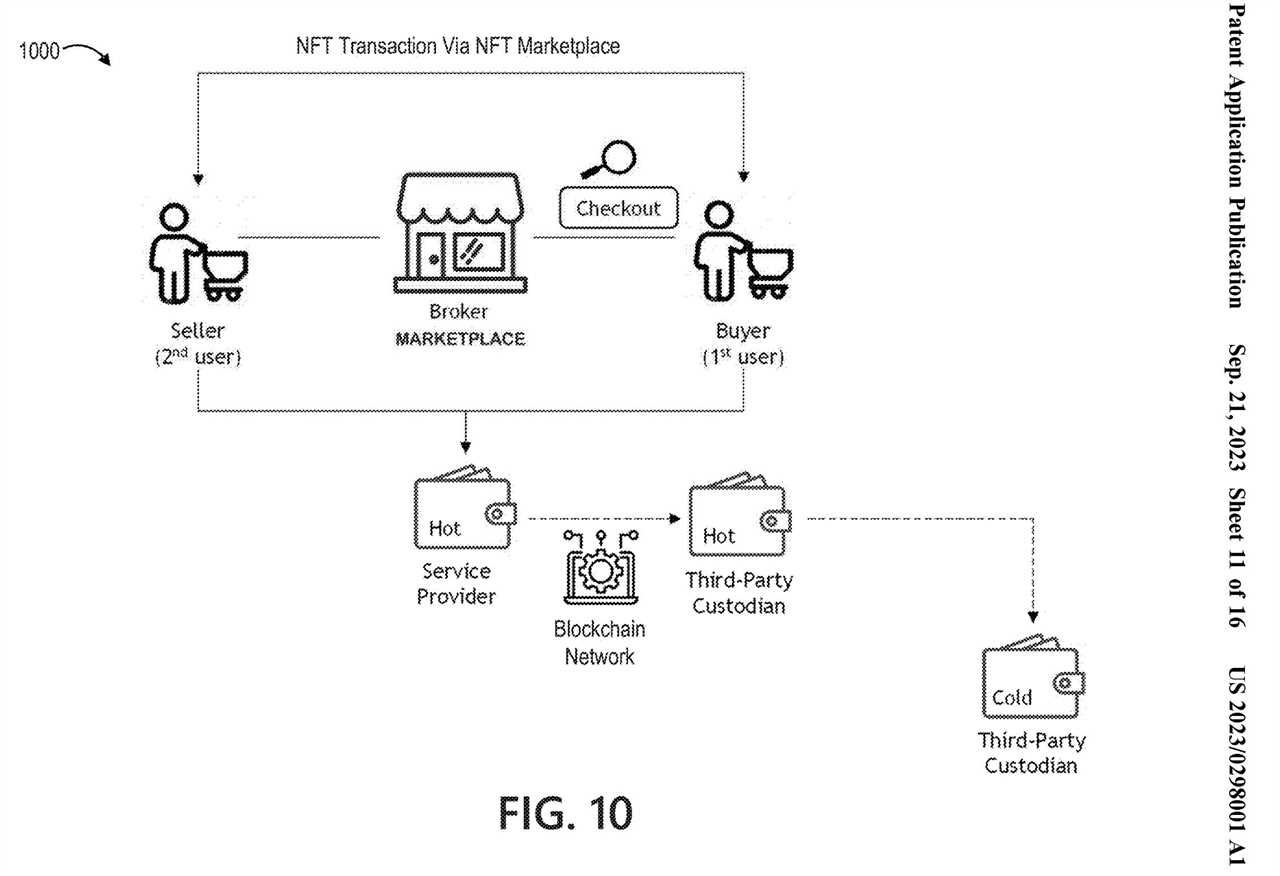
PayPal's patent application for NFT purchase and transfer system
PayPal has made significant progress in establishing its own blockchain ecosystem with a patent application for a nonfungible token (NFT) purchase and transfer system. The application, filed in March and published on Sept. 21, outlines a method for conducting transactions with NFTs, both on- and off-chain.
Expanding the possibilities of NFTs
The pending patent application describes a system where users can buy and sell NFTs through a third-party service provider. While the provider is not specified, Ethereum is mentioned as a potential platform. PayPal envisions unlocking the full potential of NFTs, allowing tokenization beyond electronic collectibles.
"The NFT in this example may represent any unique piece of digital data that can be tracked using a decentralized blockchain ledger. Examples of such assets include digital images and videos, music, collectibles, and other digital art along with deeds to personal property, event tickets, legal documents, and other real-world items," according to the patent application.
Customization and utility
The system outlined in the patent application can be customized in various ways. For instance, it can facilitate fractionalized purchases through the distribution of governance tokens, which can then be traded. Additionally, a decentralized autonomous organization associated with the service provider could be utilized to enhance NFT liquidity through a dedicated platform. NFTs could also generate income from royalties.

The service provider would handle processes such as compliance and risk management. Although users could have their own digital wallets, it would not be mandatory. Alternatively, a third-party broker could offer storage and checkout services. Off-chain transactions could be conducted within an "omnibus wallet" associated with the service provider, which would include the wallets of both the buyer and seller. This eliminates the need to register the transfer on the blockchain, avoiding associated transaction fees.
Flexible currency options
The patent application states that any currency could be utilized within the system. In August, PayPal announced its own stablecoin, PayPal USD (PYUSD), which is built on the Ethereum blockchain.
Did you miss our previous article...
https://trendinginthenews.com/crypto-currency/buenos-aires-becomes-the-first-city-in-latin-america-to-launch-blockchainbased-digital-id






